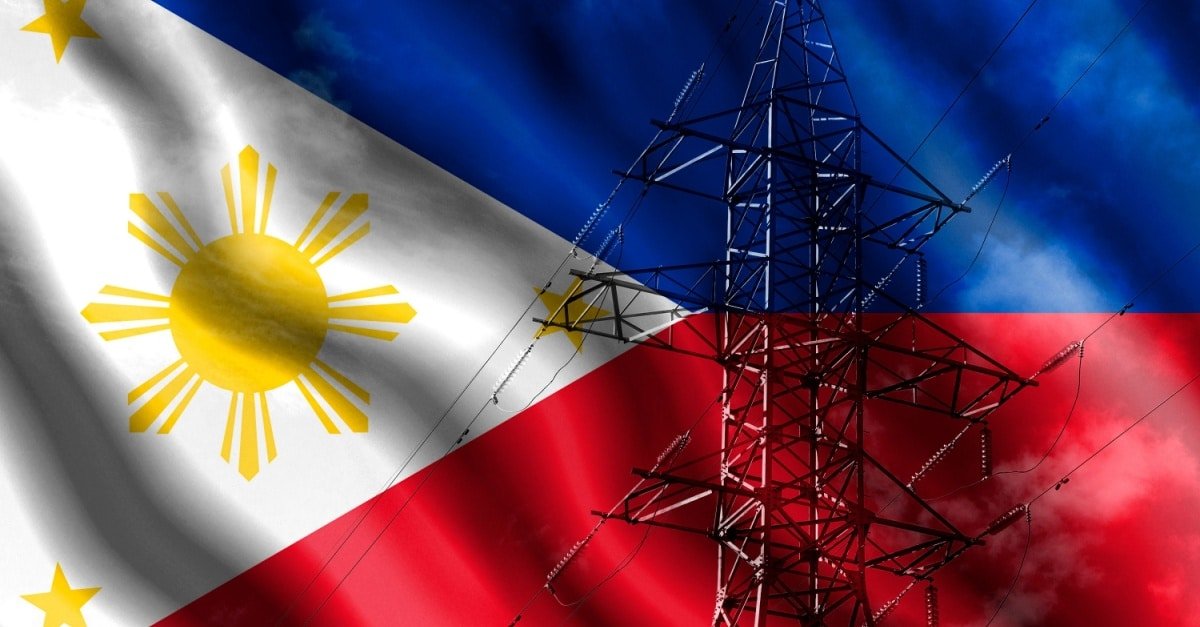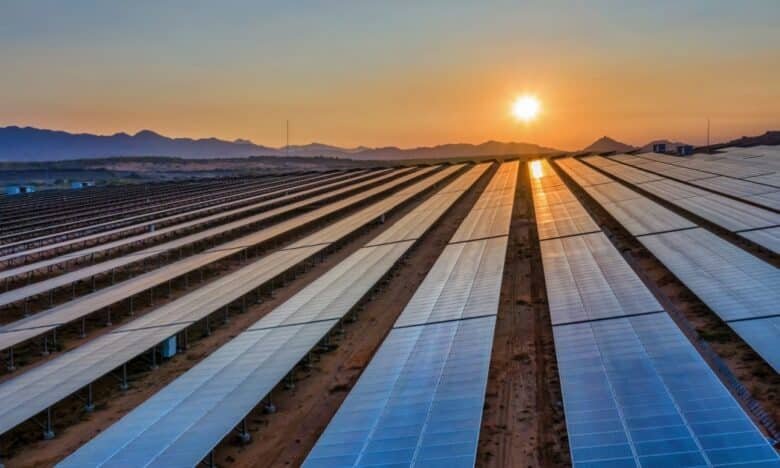
ERC Chair’s Unfinished 7-Year Term Sparks Concerns
- August 6, 2025
On July 14, 2025, Malacañang officially confirmed the “irrevocable resignation” of Energy Regulatory Commission (ERC) Chairperson Monalisa C. Dimalanta, who was appointed in 2022 and whose term was slated to run until 2029. Dimalanta exits with a record that combined policy reforms and modernization efforts with unresolved issues, including delays in key rulings and administrative complaints.
Senator Sherwin Gatchalian described Dimalanta’s resignation as a major loss, crediting her with promoting consumer welfare, transparency, and principled leadership. “We wish Chair Mona all the very best,” he said.
However, business leaders raised alarm over a looming regulatory standstill at the ERC, citing the simultaneous departure of the ERC chief and two commissioners. The Philippine Chamber of Commerce and Industry (PCCI) warned that the lack of quorum could delay “key decisions regarding power tariffs, consumer protection and energy policies that will unfairly weigh on industrial and domestic consumers.”
Meanwhile, the People for Power Coalition expressed gratitude for her pro-consumer reforms but noted concerns as electricity rates continued to climb during her tenure.
(Also read: Proudly Pinoy Clean Energy Inventions You Should Know)
ERC’s vital position
The ERC plays a pivotal role in the Philippines’ energy landscape, particularly in driving the country’s green energy transition and ensuring stable, affordable electricity as a foundation for economic growth.
-
Regulatory stability for investor confidence
By setting rules and enforcing policies on electricity pricing, transmission, and distribution, the ERC provides the regulatory foundation needed for a functioning energy market. Its independence and consistency give investors the confidence to fund long-term, capital-intensive renewable projects. In the absence of stable regulation, developers tend to delay or scale back expansion plans.
-
Approving renewable energy projects
By approving Power Supply Agreements (PSAs), the ERC provides the legal gateway for renewable energy projects to connect to distribution utilities. This ensures projects can reach consumers under fair and structured contracts. It mandates a two-tiered review process, first verifying compliance with Competitive Selection Process (CSP) rules, then evaluating the PSA’s reasonableness in tariff, costs, and contractual terms.
-
Balancing affordability and clean energy
The ERC regulates rate‑setting mechanisms tied to emerging technologies, ensuring fairness and transparency in pricing. In mid-2025, for example, the ERC established reserve price caps under the Green Energy Auction for solar and wind projects with integrated battery storage, aiming to balance consumer protection with investor viability.
-
Grid modernization and reliability
To guarantee grid stability amid rising renewable integration, the ERC approved over ₱5 billion worth of NGCP projects in February 2025 to prevent overloads and strengthen supply in areas like Bacolod, Leyte, and Pangasinan. In June, it cleared direct transmission links for five clean energy projects with battery storage.
-
Consumer protection
Under the Magna Carta for Residential Electricity Consumers, the ERC ensures fairness in billing, enforces proper notice before service disconnections, and guarantees customers the right to contest their electricity bills, such as paying under protest without fear of immediate disconnection.
(Also read: What Siquijor Reveals About EC Challenges)
Reforms & roadblocks under Dimalanta’s leadership
During her time as ERC chair, Dimalanta oversaw the approval of a ₱28.29-billion transmission rate adjustment for the National Grid Corp. of the Philippines (NGCP) and introduced a digital toolkit to streamline power supply procurement. Coordination with the Department of Energy (DOE) was also strengthened through a data-sharing pact designed to enhance market monitoring and policy alignment.
Between March and June 2024 alone, the Commission cleared over 6,000 MW in power projects—nearly double the previous quarter—helping advance energy security, expand renewables, and enforce stricter compliance across the sector.
Additionally, the ERC delivered tangible consumer benefits in 2024. Notably, participants in the Retail Competition and Open Access (RCOA) program realized nearly ₱19 billion in savings within that year alone, as larger power users were able to access retail electricity suppliers offering generation rates significantly lower than traditional distribution utilities.
Meanwhile, the net‑metering program enabled the number of qualified end‑users to rise by 121% between 2022 and 2024, growing from approximately 1,867 to 4,125 users. Total installed solar capacity increased from around 16,573 kilowatt-peak (kWp) in 2022 to 38,158 kWp in 2023. These accomplishments reflect Dimalanta’s focus on expanding consumer access, promoting energy democracy, and driving market competition.
However, the ERC also navigated several high-profile regulatory matters that sparked debate and scrutiny under her term.
In August 2024, Dimalanta was suspended for six months by the Ombudsman over a complaint filed by National Association of Electricity Consumers for Reforms Inc. (Nasecore). She was accused of allowing Meralco to buy power from the Wholesale Electricity Spot Market (WESM) and pass on costs to consumers without ERC approval, allegedly violating the Electric Power Industry Reform Act (EPIRA).
Nasecore also questioned Dimalanta’s handling of Meralco’s rate recalculation, noting a 609-day delay in issuing a pre-trial order—339 days beyond the legal timeframe. The lapse drew concern over fairness and efficiency, especially as similar cases for other utilities like the Cagayan Electric Power and Light Company (CEPALCO) and the Dagupan Electric Corporation (DECORP) moved on time.
During her suspension, ERC’s leadership stalled. Dimalanta herself warned that the agency could not meet or make decisions in her absence, since the Commission requires the Chair to convene sessions. As a result, approval for PSAs for 23 electric cooperatives was delayed, potentially forcing them to rely on the volatile WESM for sourcing power.
By October 2024, the Ombudsman lifted the preventive suspension ahead of its full term. The Office of the President then reinstated Dimalanta via executive memorandum. Despite her reinstatement, the administrative investigation remained active, with her having filed counter-affidavits and awaiting further proceedings such as clarificatory hearing or position papers.
New ERC Chief pledges streamlined rules
Incoming ERC chair Francis Saturnino Juan aims to fast-track reforms for quicker, more decisive regulatory action starting Aug. 8. He plans to revisit how the ERC reviews and approves power supply deals to speed up new energy projects and meet rising demand.
Amid recent rate reset issues with Meralco, Juan aims to revisit the current performance-based rate-setting method to ensure fair pricing and efficient utility regulation.
Juan is also eyeing reforms to let on-grid electric cooperatives file individual rate cases and to exempt utilities from penalties if project applications remain pending beyond three months—moves aimed at easing financial strain and improving service delivery.
As the Philippines pushes forward with its energy transition and faces rising demand, the role of the ERC has never been more critical. In an environment where investor confidence and consumer protection must go hand in hand, strong, stable, and forward-looking regulation is indispensable.
Dimalanta’s departure leaves behind both achievements and challenges, but it also opens the door for recalibration. All eyes are now on incoming Juan to restore momentum and credibility. With the promise of faster, clearer, and more inclusive regulation, the ERC has the opportunity to evolve into a more agile institution—one that can protect consumers, support energy innovation, and build a reliable power sector for the years ahead.
Sources:
https://www.philstar.com/business/2025/07/14/2457907/dimalanta-resigns-erc-chief-palace-confirms
https://newsinfo.inquirer.net/1641540/lawyer-monalisa-dimalanta-appointed-as-erc-chair
https://tribune.net.ph/2025/07/14/dimalanta-irrevocably-resigns-as-erc-chair
https://mb.com.ph/2023/11/8/erc-prescribes-2-tiered-review-process-for-auctioned-power-supply-deals
https://www.philstar.com/business/2025/06/16/2450755/erc-sets-ceiling-rates-fourth-green-auction
https://www.philstar.com/opinion/2024/09/12/2384618/suspended
https://www.philstar.com/headlines/2024/11/03/2397233/ombudsman-erc-chief-still-under-investigation
https://qa.philstar.com/business/2025/07/19/2458959/new-erc-chief-vows-speed-up-simplify-regulation
https://mb.com.ph/6/3/2025/erc-to-open-electricity-market-to-household-consumers
https://plus.inquirer.net/business/net-metering-gaining-ground-says-erc



